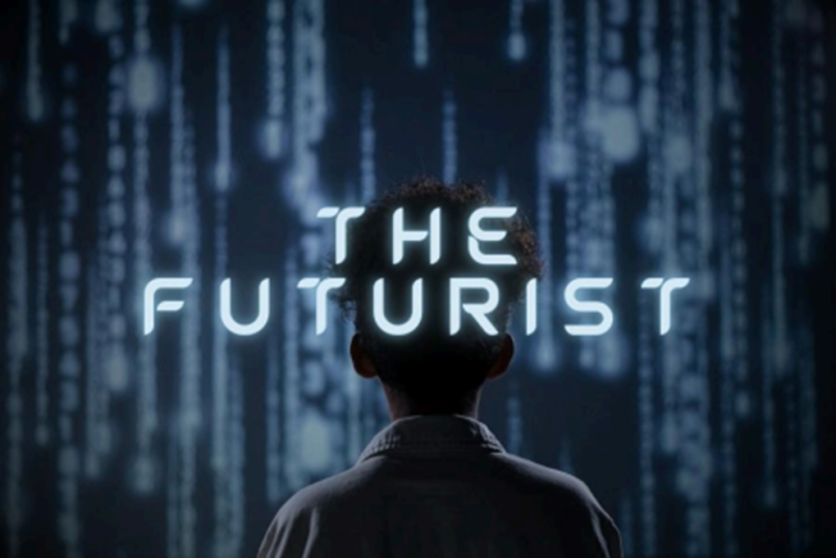
Anthony Starr has never been content to operate inside the box. As a business strategist, AI observer, and advocate for clarity over complexity, he's spent the last several years helping entrepreneurs reframe how they scale. Now, with the release of his forthcoming book The Futurist, he's taking that mission further, challenging readers to rethink not only their business models, but the mental frameworks they use to engage with the future.
"Most people are too busy reacting to see what's coming," Starr says. "But the future doesn't reward the reactive. It rewards the prepared."
That preparation, in Starr's view, doesn't begin with tools or trend reports. It begins with a mindset. His forthcoming book blends strategic insight with psychological reframing, offering readers a practical lens for navigating a rapidly shifting world. The themes explore what he calls "future-focused operating systems," helping individuals move beyond reactive thinking and toward conscious decision-making.
Starr belongs to a new wave of futurists who reject the idea that foresight belongs only to technologists or academics. Thinkers like Ian Khan and Lindsay Angelo have shown that futurism can be emotional, human, and action-driven. Starr builds on that tradition, speaking not from a podium but from the trenches of business consulting. His ideas are rooted in real client work and sharpened by experience.
"I don't start with the problems," he said in an earlier interview. "I start with the patterns that are working and build out from there. To give you a great example, I once worked with a startup client who was working with a freelance digital marketer-slash-graphic designer—a content creator, but constantly stuck in reactive mode. She was juggling deadlines, emails, and proposals, yet felt like she was running on a hamster wheel. I introduced my Quantum Focus method by carving out two 15-minute windows each morning for 396 Hz immersion and guided breathing. Within three weeks, her clarity skyrocketed. She started batching tasks, automated routine invoices with a lightweight AI tool, and doubled her billable hours—without adding to her stress."

That strengths-first mentality has shaped Starr's reputation among founders and operators. His approach is simple. Find what's already generating momentum. Amplify it. Remove friction. Create a roadmap that helps the business move faster, but with more clarity. He calls this method "conscious scaling," a theme that runs throughout The Futurist.
This philosophy is especially resonant in today's environment. According to the World Economic Forum, more than 80 million jobs are expected to be disrupted by automation and AI by 2025, while nearly 100 million new ones will emerge. In parallel, McKinsey reports that the most future-ready leaders will be those who combine intuition with data, and adaptability with focus. In this context, Starr's message isn't about innovation for its own sake. It's about alignment.
"We're all living in our own realities," he says. "The key is realizing you can shape that reality with your thinking."
That concept isn't metaphorical. For Starr, clarity of thought is not just an advantage. It's a prerequisite. He often argues that many entrepreneurs are operating on outdated mental software, stuck in cycles of overcorrection or indecision. His work helps them build a cleaner interface between belief and action.
In that sense, The Futurist isn't a book of predictions. It's a perspective manual. Starr doesn't try to forecast the next wave of technology. He helps readers prepare for any wave by strengthening the way they process complexity.
"There's so much noise in the future space," he says. "Everyone's trying to predict. I'm not here to predict. I'm here to help people prepare."
He has built this philosophy across multiple formats. His LinkedIn newsletters, including The Futurist and Future Friday, offer weekly insights on emerging trends, from synthetic media to the psychological impacts of AI. Each edition blends business relevance with mindset tools, inviting readers to consider not just what's changing, but how they're responding.
This positioning fits squarely within a broader shift in thought leadership. According to LinkedIn's 2024 Workforce Trends Report, subject-matter credibility and consistent communication are now key factors in business growth, especially for entrepreneurs and solo founders. Starr not only embraces that model. He personifies it.
His audience has grown not because of viral marketing, but because of steady, grounded thought. Each piece of content builds trust. Each idea helps readers get just a little clearer about their direction.
In many ways, Starr's work is a call to simplicity in a complex world. He doesn't rely on jargon or bloated frameworks. He invites people to pause, assess, and accelerate with intention.
"Growth without direction is just noise," he says. "What I'm interested in is helping people align their personal operating system with where the world is going, not where it's been."
That clarity is what makes The Futurist feel relevant at a time when many are overwhelmed by hype and uncertainty. Starr isn't offering escape routes. He's offering perspective. His ideas are grounded in the belief that the future is not a mystery to be solved. It is a direction to be shaped.
"The future isn't something you wait for," he says. "It's something you build toward, starting with how you think."
ⓒ 2026 TECHTIMES.com All rights reserved. Do not reproduce without permission.




